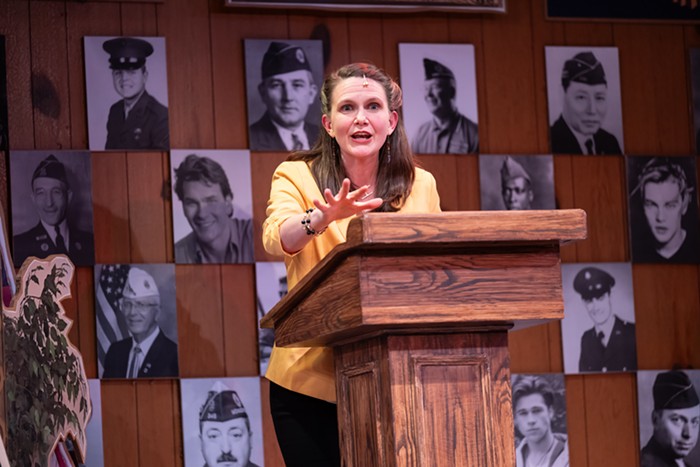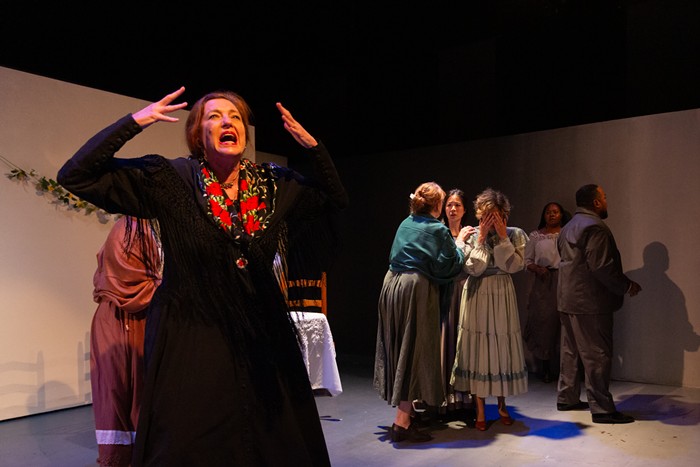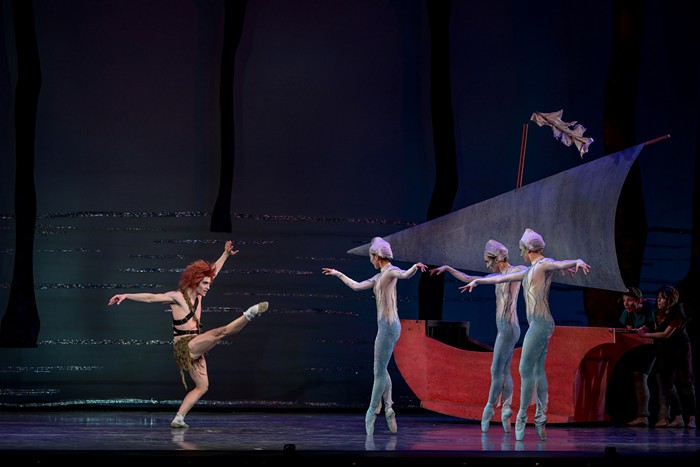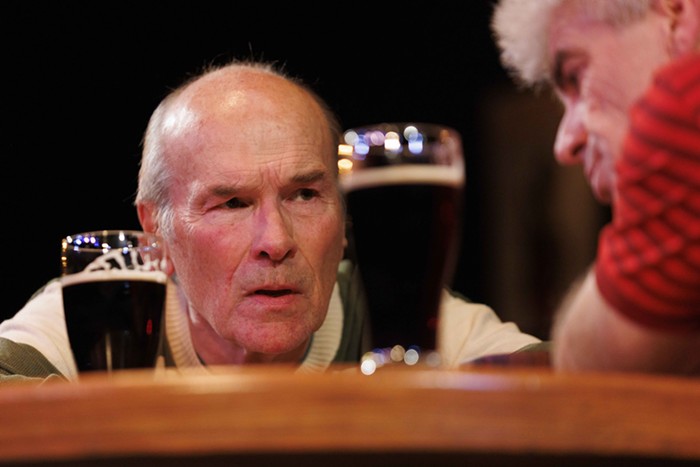SOMETIMES HEADLINES write themselves, and there are some pretty low-hanging suck puns available to critics of Dracula, A Musical Nightmare. Stumptown Stages' labored production takes just under three hours to tell a familiar story wrapped in inexpert burlesque-hall camp. Funnier, sexier, and more competent work can be found in Portland's actual burlesque halls; Stumptown Stages strains to keep Dracula aloft on breezy holiday spirit, but both the venue and the uninspired material conspire against the production.
The Portland Center for the Performing Arts' Brunish Theatre—the small space upstairs—has been converted to contain a small, slightly recessed stage surrounded on three sides by seats. Visibility can suffer in the side seats, although a better seat would by no means have transformed this into a better production.
A flamboyant emcee (Kirk Mouser), backed by three tarted-up dancers, introduces the tale of Dracula and his foes—a show-within-a-show that occasionally sees fit to announce its dazzling self-awareness by having an actor shout "stage convention!" during particularly contrived bits. The action cuts between "an English music hall," Dracula's castle, and the sanitarium where Dracula's loyal servant Renfield snacks on bugs and plots to do his master's bidding.
The show suffers from program note comparisons to The Rocky Horror Show and Little Shop of Horrors—similarly themed entertainments that have actually pulled off horror-tinged camp. But Dracula just isn't funny, and if you remove humor from the show's concept, all you're left with is a labored retread of too-familiar material.
There is one bright note here: As Doctor Seward, Sam Dinkowitz displays the restraint and comedic timing that's in such short supply in the rest of the production. Dinkowitz has clearly taken the time to locate and refine what's funny about his character, instead of plowing through with the most obvious possible spin like so much of the rest of the cast. (The live pianist and violinist, it should also be noted, provide the show a sturdy backing—it's not their fault the music itself is relentlessly irritating.)
In fairness to other tastes than mine, I should note that a recent Sunday matinee audience offered a cheerful standing ovation at the end of the production. I chose to interpret this as a sign that the standing ovation has lost any meaning whatsoever; a more charitable interpretation would be that the Sunday crowd found much to enjoy in this show that I simply did not.



















